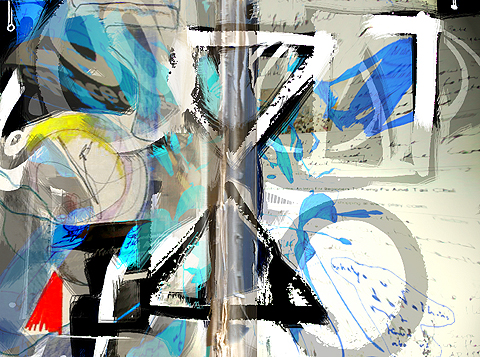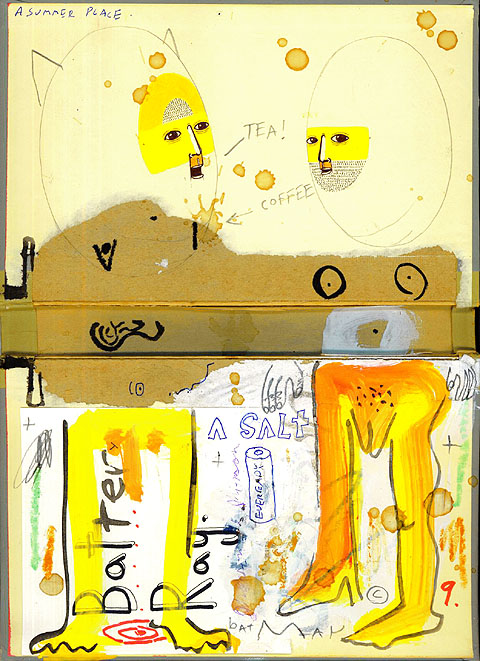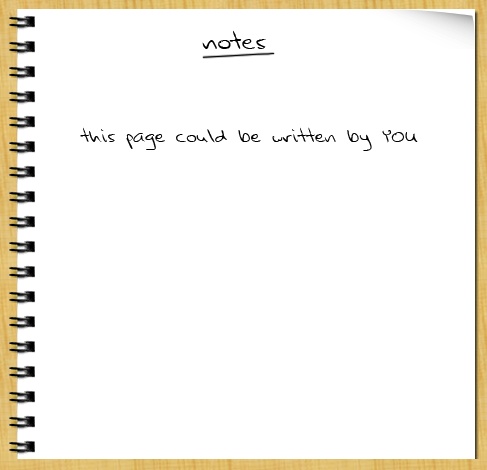Yet one more reason to check in to Alex Itin’s remarkable blog if you haven’t recently or ever. As you may have read here several weeks ago, alex started a group on Flickr, The Library Project, for people to post works that have been created by two or more artists, building serially on each other’s efforts. Last October Alex posted a beautiful video he made as an homage to the mystical Alpine light know as die alpen lumen. In a nod to the exquisite corpse form of The Library Project, a Japanese artist, Eat A Bug, posted a film he made in response. Serious kudos to alex and all his fellow artists who are demonstrating the power of collaboration and remix culture.
Category Archives: exquisite_corpse
the library project: a networked art experiment

Digital collaboration with me-jade, dou_ble_you and others in the Flickr Library Project
As he recently reflected upon here, Alex Itin has long been working at the border zones of art forms, moving in recent years to the strange intersection of paint and pixels. His blog is one of the most wildly inventive uses of that form, combining blazing low-res images of his paintings with text, photographs, short films, animated GIFs and audio mashups. All of this is done within the constraints of the blog’s scroll-like form — a constraint which Alex embraces, even relishes. I sometimes imagine the scroll endlessly emitting from Alex’s head like tape from a cash register, a continuous record of his transactions with the world.
ITIN place has been on the web for nearly two years now. In his second year, Alex began to explore new avenues out of the blog, establishing a presence on social media sites like Flickr, YouTube, Vimeo (a classier YouTube) and MySpace. Through these networked rovings, Alex has found a larger audience for his work, attracting new “readers” back to the blog where the various transmitted videos and images are reassembled in the scroll. He’s also established relationships with a number of other artists making interesting use of the web, particularly on Flickr and Vimeo. Recently, Alex invited a number of folks from the Flickr community to participate in a collaborative art project — a kind of exquisite corpse game via post. Here’s Alex:
The idea is that one artist takes a hardcover from a book, tears out the pages and draws in one half (or half draws in both halves) of the binder/diptyque. In a nod to Ray Johnson, the two books are mailed (swapped) and Each of these will be finished by the other. The results are posted in a Flicker group called (what else) The Library Project. From this group, hopefully a show will be curated for New York, or Paris, or Basel, or Berlin, or wherever anyone wants to show this project. It should be deliciously portable… get working…get collaborating…get reading!
As of this writing, the Library has racked up 278 members and has 205 images in its pool. A few of these are collaborations that have already made their trek across land, sea and air, others are purely digital combinations, while still others are simply book-inspired works submitted in the spirit of the project.
Alex has been documenting the process on his blog, weaving in some of the images. Styles combine, narratives emerge. In one video (excerpted here) he films himself receiving his first half-completed book from a Canadian artist known as driftwould. He unpacks the drawings and lets out a “wow,” than a sort of humbled sigh. It’s a nice moment of return to the physical world after several years of probing the digital ether.
And here’s how that turned out:

Read Alex’s documentation here and here.
Stay tuned for more — the project has only just begun. Plus, we’ve begun designing a fantastic new interface for Alex’s blog archives, which we’ll talk more about soon.
on ebay: collaborative fiction, one page at a time
Phil McArthur is not a writer. But while recovering from a recent fight with cancer, he began to dream about producing a novel. Sci-fi or horror most likely — the kind of stuff he enjoys to read. But what if he could write it socially? That is, with other people? What if he could send the book spinning like a top and just watch it go?
Say he pens the first page of what will eventually become a 250-page thriller and then passes the baton to a stranger. That person goes on to write the second page, then passes it on again to a third author. And a fourth. A fifth. And so on. One page per day, all the way to 250. By that point it’s 2007 and they can publish the whole thing on Lulu.

The fruit of these musings is (or will be… or is steadily becoming) “Novel Twists”, a ongoing collaborative fiction experiment where you, I or anyone can contribute a page. The only stipulations are that entries are between 250 and 450 words, are kept reasonably clean, and that you refrain from killing the protagonist, Andy Amaratha — at least at this early stage, when only 17 pages have been completed. Writers also get a little 100-word notepad beneath their page to provide a biographical sketch and author’s notes. Once they’ve published their slice, the subsequent page is auctioned on Ebay. Before too long, a final bid is accepted and the next appointed author has 24 hours to complete his or her page.
Networked vanity publishing, you might say. And it is. But McArthur clearly isn’t in it for the money: bids are made by the penny, and all proceeds go to a cancer charity. The Ebay part is intended more to boost the project’s visibility (an article in yesterday’s Guardian also helps), and “to allow everyone a fair chance at the next page.” The main point is to have fun, and to test the hunch that relay-race writing might yield good fiction. In the end, McArthur seems not to care whether it does or not, he just wants to see if the thing actually can get written.
Surrealists explored this territory in the 1920s with the “exquisite corpse,” a game in which images and texts are assembled collaboratively, with knowledge of previous entries deliberately obscured. This made its way into all sorts of games we played when we were young and books that we read (I remember that book of three-panel figures where heads, midriffs and legs could be endlessly recombined to form hilarious, fantastical creatures). The internet lends itself particularly well to this kind of playful medley.
